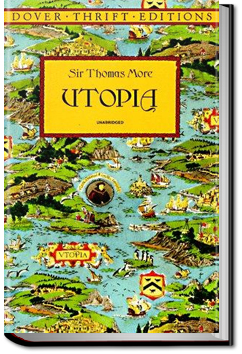

“I do not know whether it be worth while to tell what followed, for it was very ridiculous; but I shall venture at it, for as it is not foreign to this matter, so some good use may be made of it. There was a Jester standing by, that counterfeited the fool so naturally that he seemed to be really one; the jests which he offered were so cold and dull that we laughed more at him than at them, yet sometimes he said, as it were by chance, things that were not unpleasant, so as to justify the old proverb, ‘That he who throws the dice often, will sometimes have a lucky hit.’ When one of the company had said that I had taken care of the thieves, and the Cardinal had taken care of the vagabonds, so that there remained nothing but that some public provision might be made for the poor whom sickness or old age had disabled from labour, ‘Leave that to me,’ said the Fool, ‘and I shall take care of them, for there is no sort of people
Get ALL YOU CAN BOOKS absolutely FREE for 30 days. Download our FREE app and enjoy unlimited downloads of our entire library with no restrictions.
Have immediate access and unlimited downloads to over 200,000 books, courses, podcasts, and more with no restrictions.
Everything you download during your trial is yours to keep and enjoy for free, even if you cancel during the trial. Cancel Anytime. No risk. No obligations.
For just $24.99 per month, you can continue to have unlimited access to our entire library. To put that into perspective, most other services charge the same amount for just one book!

As avid readers, we understand the joy of immersing ourselves in a captivating story or getting lost in the pages of a good book. That's why we founded All You Can Books back in 2010, to create a platform where people can access an extensive library of quality content and discover new favorites.
Since our founding days, we’ve continuously added to our vast library and currently have over 200,000 titles, including ebooks, audiobooks, language learning courses, podcasts, bestseller summaries, travel books, and more! Our goal at All You Can Books is to ensure we have something for everyone.
Join our community of book lovers and explore the world of literature and beyond!